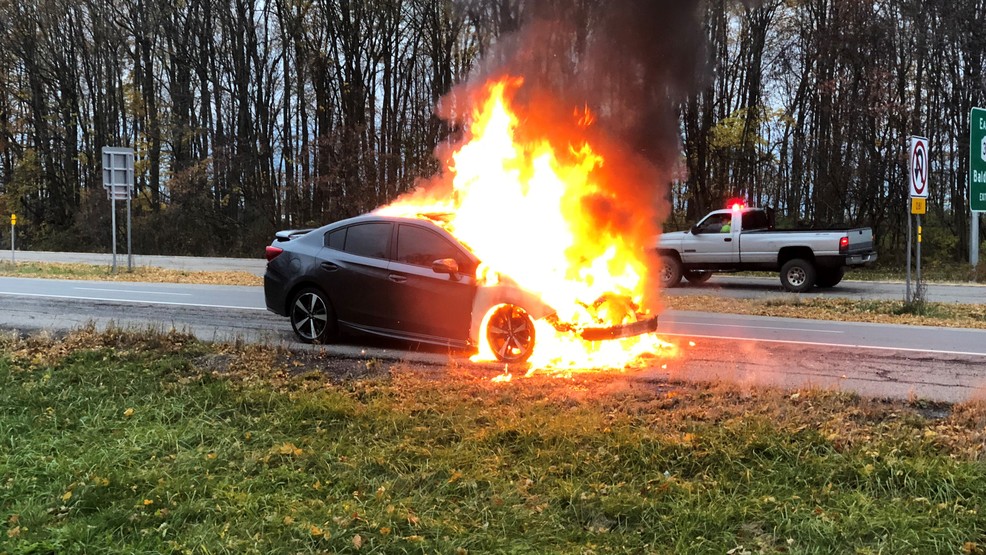A regular old car accident is terrifying, but watching your car go up in flames is the horrific worst-case scenario. In the case of a collision, there is clarity in how to handle the situation. Damages can either be fixed or the car will be declared a loss. Typically, car insurance companies come through and the debacle is rather straightforward. Car fires can be more difficult to navigate. They cause intense amounts of damage and can start in numerous ways. Luckily, most auto insurance companies will cover a car fire so long as you have comprehensive coverage included in your plan. Unfortunately, this is something that will need to be purchased long before the loss occurs. In the case of a car fire, hindsight can be 20/20.
Comprehensive Coverage Is Key. What Is It?
Comprehensive coverage is something you might not think you need to pick up when choosing a car insurance plan. After all, it can bump up your monthly premium. In reality, comprehensive coverage costs are well worth the extra dough, especially when it comes to a car fire. Comprehensive coverage exists to pay for damages a vehicle incurs from anything other than a collision. In most states, it is optional, but a few require you to carry comprehensive coverage by law. Generally, with comprehensive coverage, a deductible will apply.
Comprehensive coverage is sometimes known as “full coverage,” as it protects not only injured people but any property that is damaged outside of the vehicle, and the vehicle itself. If your vehicle catches on fire, comprehensive coverage will pay for the damages. This kind of policy will also kick in in the event that you hit an animal or your car is vandalized. All common occurrences in the modern-day. How much will comprehensive coverage pay if your car catches fire? Let’s pretend that a fire causes $4,000 worth of damages to your vehicle and you carry a $500 deductible on the comprehensive portion of your insurance plan. Your insurance company will pay $3,500 and you’ll pay the $500 deductible. Not bad in the grand scheme of things.
What Kind Of Fire Damage Will Insurance Cover?
Just as there are many types of car accidents, there are many types of fire damage. Will comprehensive coverage kick in in the event of any type of fire?
Arson Related Car Fires
Vehicles aren’t often deliberately set on fire, but sometimes they are and you’re left feeling helpless after such a criminal act occurs. If someone sets your car on fire intentionally as an act of arson, your comprehensive coverage will pay for damages. As this is an act of vandalism, it will fall under the umbrella of your policy. If you happen to set your own car on fire, that’s a different story. Don’t prepare for the damages to be covered.
Garage Fires
It is wholly possible for a fire to start in your garage, causing damage to both your home, your vehicle and everything within the vehicle as well. In this instance, your auto insurance policy is the only option you have for compensation if your car is parked within the garage. Your homeowners insurance will not cover your car, only the garage structure itself.
Fire As A Result Of An Accident
Every now and then a car accident can cause a vehicle to catch fire or burst into flames. If the impact damages the car’s fuel lines or gas tank, a fire can easily occur. Additionally, electric vehicles have been known to catch fire with ease in the event of an accident due to the type of battery used. In the event that your car catches fire due to an accident, the accident could either fall under collision or comprehensive coverage depending on the exact cause of the accident. Either way, insurance will kick in.
Engine Fires
Unfortunately, car fires can start from within the engine compartment of the vehicle. This typically occurs due to mechanical malfunction within the car’s fuel or electrical systems. As this is out of your control and wholly unintentional, your comprehensive policy will cover the loss and any major damages.
As long as you carry comprehensive coverage, your car will be covered by insurance should it catch on fire. The only way your car wouldn’t be covered is if you were to start the fire yourself or if you were the direct cause of the fire. Otherwise, you’re covered!

